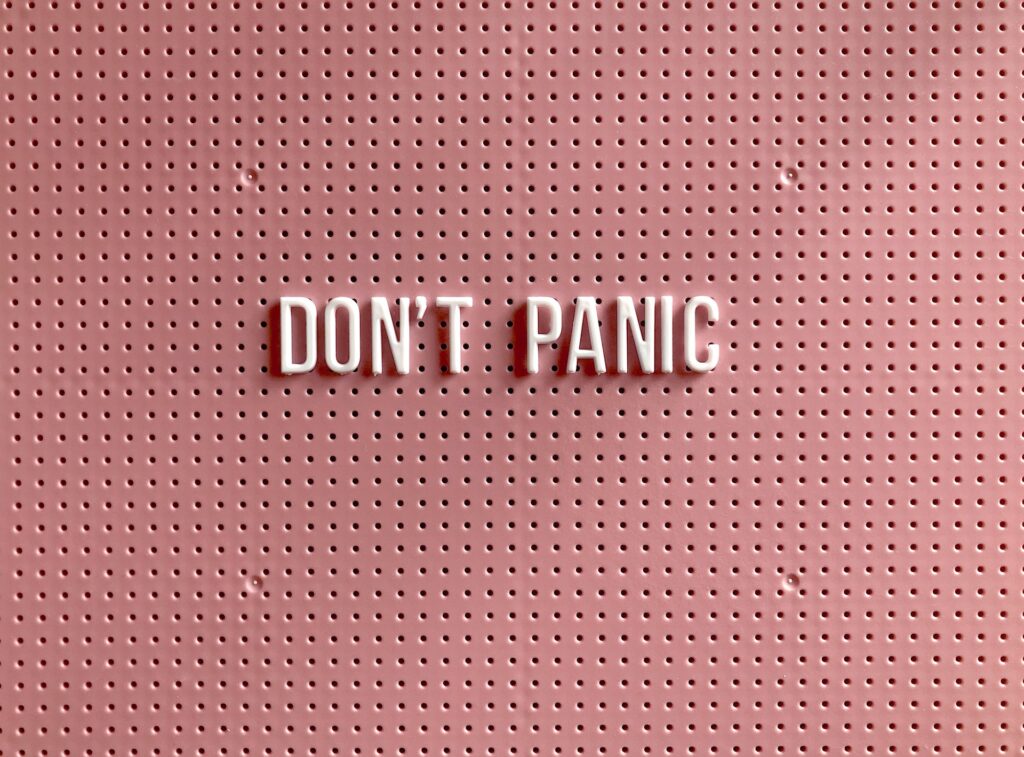
“Anxiety does not empty tomorrow of its sorrows, but only empties today of its strength.” – Charles Spurgeon
Anxiety is something that everyone feels from time to time. Anxiety is defined as a feeling of unease, nervousness, worry, fear, or dread about what is about to happen or might happen. Anxiety is a protective mechanism that is triggered whenever a person perceives danger or threat.
Anxiety can assist us in avoiding danger by providing us with the energy and alertness necessary to escape. Anxiety is part of the body’s natural reaction to stress, so it can be helpful at times, making you more alert and ready for action. However, some people experience constant anxiety without a specific trigger. As a result, they perceive situations as significantly worse than they actually are, and their anxiety impairs their ability to concentrate, sleep, and carry out ordinary tasks.
Anxiety symptoms can range from mild to severe (or anywhere in between), depending on the person and the situation. Worry, tension, and stress are all symptoms of anxiety. A sense of unease or nervousness can characterise mild anxiety. At times, more severe anxiety can manifest as fear, dread, or panic. It is natural to feel anxious or nervous in new, unfamiliar, or challenging situations. Anxiety can be triggered by a variety of factors, including exams, public speaking, a new job, a date, or even a party. Although these situations do not pose a threat to a person’s safety, they can make them feel “threatened” by potential embarrassment, fear of making a mistake, not fitting in, stumbling over words, rejection, or loss of pride.
Anxiety symptoms can begin in childhood or adolescence and last well into adulthood. People who struggle with anxiety may avoid certain places or situations in order to avoid these feelings. Anxiety can cause social isolation and clinical depression and impair a person’s ability to work, study, and perform daily tasks. Relationships with friends, family, and co-workers may also suffer as a result. It’s not uncommon for depression and anxiety to occur simultaneously. Depression is a serious illness that puts people at risk for self-harm and suicide.
Anxious people may think things like
- ‘Everything is going to go wrong’
- ‘I am going to fail’
- ‘I might die’
- ‘The way I feel is too overwhelming to handle’
- ‘I can’t seem to concentrate on anything other than my worries’
- ‘I don’t feel like going out today’
- ‘I can’t seem to calm down’
Common anxiety signs and symptoms include
- Feeling nervous, restless or tense
- Having a sense of impending danger, panic or doom
- Having an increased heart rate
- Breathing rapidly
- Light-headedness, dizziness
- Sweating
- Trembling
- Feeling weak or tired
- Inability to focus or think about anything other than the present moment
- Experiencing gastrointestinal issues
- Difficulty controlling anxiety
Other signs can include
- Inability to relax
- Sleep problems (unable to sleep, frequently waking up during the night)
- Avoiding certain people or places, such as work or social situations
- Withdrawing from family and friends
- Feeling annoyed, irritated, or restless
For individuals suffering from anxiety, symptoms may initially appear strange and confusing. The physical sensations can be overwhelming and upsetting for some people. Others may experience feelings of impending doom or fear that occur for no apparent reason, leaving them fearful, unprotected, and on guard. All of these factors can have an effect on a person’s concentration, confidence, sleep, appetite, and outlook. Anxiety can prevent people from going to places or doing things they enjoy. Some people who suffer from anxiety may blame themselves; they may be embarrassed or ashamed or believe that anxiety is a sign of weakness or personal failure.
Finally, it’s perfectly natural to feel anxious when life becomes hectic and complicated. However, when anxiety becomes overwhelming, it can feel as though it is in control of your life. If you are constantly worried or nervous or have difficulty sleeping due to your anxiety, pay attention to your thoughts and feelings. They could be signs of an anxiety disorder or problem. Some of these signs and symptoms can also be indicators of other medical conditions, so it’s always a good idea to see your doctor and have them thoroughly examined.
My Practice provides affordable counselling and all profits are reinvested into the organisation to continue providing low-cost counselling and mental health services to our community. If you’re interested in scheduling a free 15-minute consultation with us, book online today.